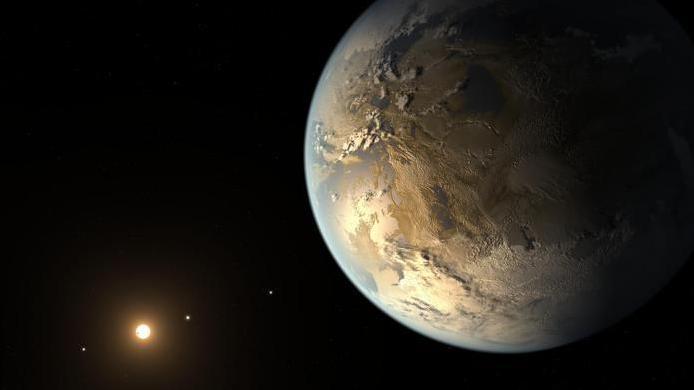Scientists want new mission to seek out alien life

- Published
A team of scientists want to start a new mission to try to find life beyond Earth and the solar system.
Astronomers from ETH Zurich, a Swiss university, want to send four space telescopes to explore exo-planets even further away than Neptune, the planet furthest from the Sun.
They say their LIFE (Large Interferometer For Exoplanets) mission, would look at lots of Earth-like planets for signs of life like oxygen and water vapour.
No space agency has taken their plan yet up, but the researchers say that even if it detected no signs of life at all, it would be worth doing.
They argue the data they gather could help to make progress on the big question of whether or not there is life out there.
Seven exoplanets discovered
- Published23 February 2017
'Super-Jupiter': Giant gas planet discovered by space telescope
- Published25 July 2024
Could this large Earth-like planet be home to alien life?
- Published29 January
What is an exo-planet?
The Big Question: The solar system, planets and exo-planets
Exoplanets are planets that are outside our solar system and orbit a different star to our Sun.
Our solar system is made up of the Sun, eight planets, five officially named dwarf planets, hundreds of moons, and thousands of asteroids and comets.
It sits in our galaxy which is called the Milky Way.
Thousands of exoplanets have been discovered in our galaxy, but Nasa believes billions exist.
In a study published in the journal Astronomical Journal, physicist Dr Daniel Angerhausen from ETH Zurich said more should be done to explore them for clues about alien life.
"A single positive detection would change everything," he said, but even if a mission didn't find signs of life, he argued it would help data experts work out "how rare - or common" planets with signs of life actually are, to help with future missions.
